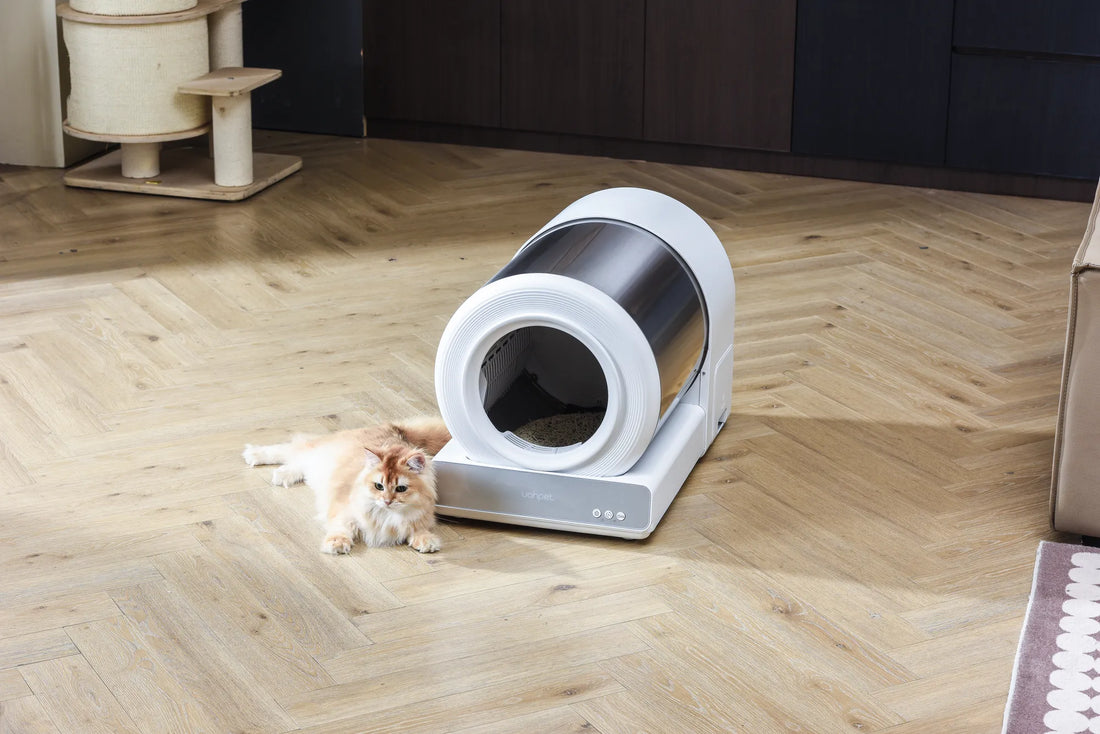Dealing with a cat that pees outside the litter box can be frustrating and stressful for any pet owner. This behavior not only creates a mess but also raises concerns about your cat's health and well-being. Understanding the root causes and implementing effective solutions can help you address this issue and restore peace in your home.
Why Do Cats Pee Outside the Litter Box?
Cats are naturally clean animals, and their instinct is to use a litter box for elimination. However, several factors can lead to inappropriate urination. Identifying the cause is the first step toward resolving the problem.
Medical Issues
Health problems are one of the most common reasons cats avoid the litter box. Conditions such as urinary tract infections, bladder stones, or kidney disease can cause pain or discomfort, making your cat associate the litter box with negative experiences. If your cat suddenly starts peeing outside the box, a visit to the veterinarian is essential to rule out medical issues.
Stress and Anxiety
Cats are sensitive creatures, and changes in their environment can trigger stress or anxiety. Moving to a new home, introducing a new pet, or even rearranging furniture can disrupt their routine and lead to behavioral issues. Stress-related urination often occurs in areas where the cat feels safe or in spots that carry their scent.
Litter Box Preferences
Cats can be picky about their litter box. Factors such as the type of litter, the size of the box, or its location can influence their behavior. If the litter box is too small, too dirty, or placed in a noisy or high-traffic area, your cat may choose to pee elsewhere.
Territorial Marking
Unneutered or unspayed cats may urinate outside the litter box to mark their territory. This behavior is more common in multi-cat households where competition for resources can lead to territorial disputes. Spaying or neutering your cat can help reduce this behavior.
How to Stop a Cat from Peeing Outside the Litter Box
Once you've identified the cause, you can take steps to address the issue and encourage your cat to use the litter box consistently.
Consult a Veterinarian
If you suspect a medical issue, schedule a visit to the vet. A thorough examination and diagnostic tests can help identify any underlying health problems. Treating the condition promptly can resolve the inappropriate urination behavior.
Create a Stress-Free Environment
Reducing stress and anxiety is crucial for cats with behavioral issues. Provide a safe and quiet space where your cat can retreat when feeling overwhelmed. Use calming products such as pheromone diffusers or sprays to create a relaxing atmosphere. Gradually introduce any changes to their environment to minimize disruption.
Optimize the Litter Box Setup
Ensure the litter box meets your cat's preferences. Choose a box that is large enough for your cat to move comfortably and use unscented, clumping litter. Place the box in a quiet, accessible location away from food and water bowls. Clean the box daily to maintain hygiene and encourage regular use.
Address Territorial Issues
In multi-cat households, provide multiple litter boxes to reduce competition. The general rule is to have one litter box per cat, plus an extra one. Place the boxes in different areas of the house to give each cat their own space. Spaying or neutering your cat can also help curb territorial marking.
Use Positive Reinforcement
Reward your cat for using the litter box correctly. Offer treats, praise, or playtime immediately after they eliminate in the box. Positive reinforcement helps create a positive association with the litter box and encourages consistent behavior.
Clean Soiled Areas Thoroughly
If your cat has peed outside the litter box, clean the area thoroughly to remove any traces of odor. Use an enzymatic cleaner specifically designed for pet stains to break down the urine molecules and prevent your cat from returning to the same spot.
Preventive Measures to Avoid Future Issues
Taking proactive steps can help prevent your cat from peeing outside the litter box in the future.
Maintain a Consistent Routine
Cats thrive on routine, so try to keep their feeding, playtime, and litter box cleaning schedule consistent. A predictable routine helps reduce stress and promotes good litter box habits.
Monitor Your Cat's Behavior
Pay attention to any changes in your cat's behavior or litter box habits. Early detection of issues allows you to address them before they escalate. Regular veterinary check-ups can also help catch potential health problems early.
Provide Enrichment and Stimulation
Boredom or lack of stimulation can contribute to behavioral issues. Provide toys, scratching posts, and interactive play sessions to keep your cat mentally and physically engaged. A happy and stimulated cat is less likely to develop inappropriate urination habits.
Consider Professional Help
If the problem persists despite your efforts, consult a professional animal behaviorist. They can assess your cat's behavior and provide tailored strategies to address the issue effectively.
Stopping a cat from peeing outside the litter box requires patience, understanding, and a proactive approach. By identifying the cause, implementing effective solutions, and taking preventive measures, you can help your cat develop good litter box habits and maintain a clean and harmonious home. Remember, every cat is unique, and finding the right solution may take time, but the effort is well worth it for a happy and healthy feline companion.

![[🎃Halloween Sale]UAHPET Stainless Steel Self-Cleaning Cat Litter Box](http://www.uahpet.com/cdn/shop/files/1-cat-litter-box.jpg?v=1759128420&width=1600)












